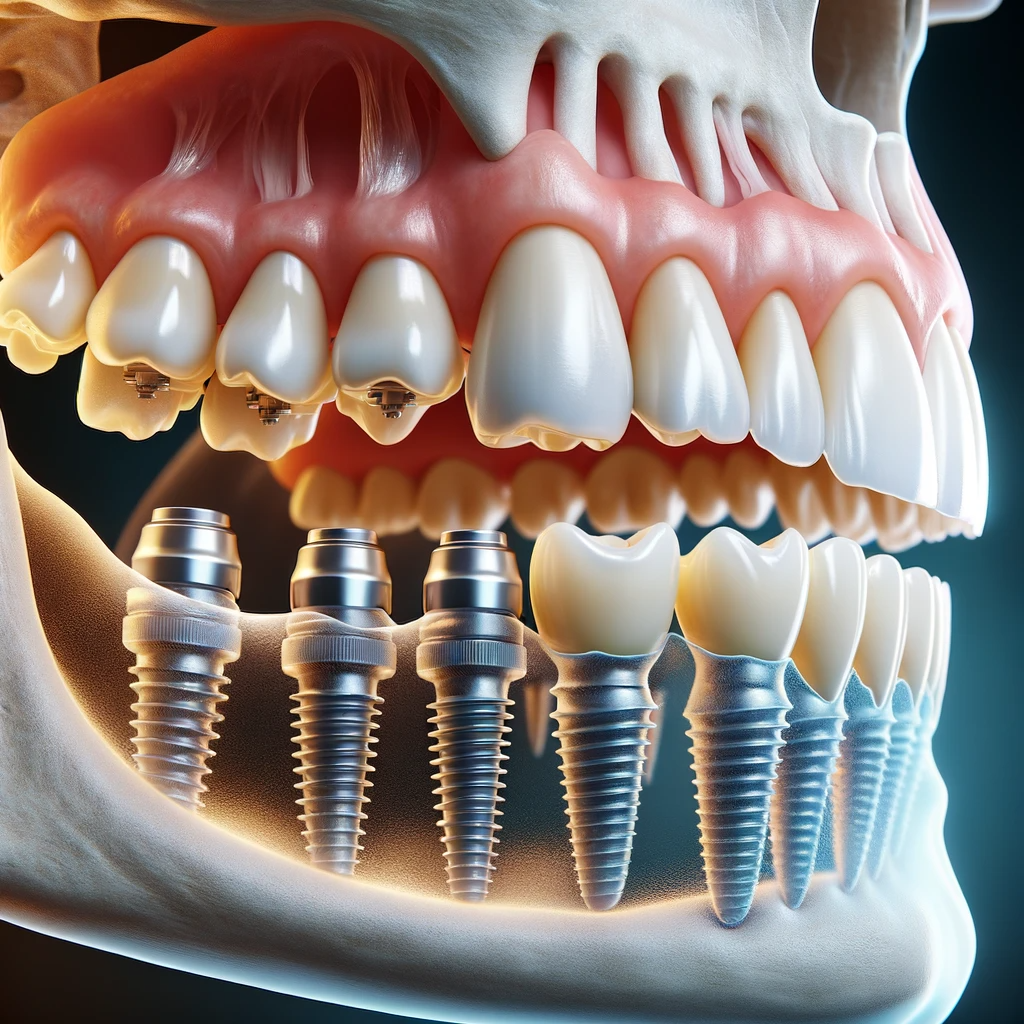Some Ideas on Dental Sense You Need To Know
Some Ideas on Dental Sense You Need To Know
Blog Article
Dental Sense Things To Know Before You Buy
Table of ContentsSee This Report on Dental SenseThe Facts About Dental Sense UncoveredDental Sense for BeginnersThe 6-Minute Rule for Dental Sense
are medical devices operatively implanted into the jaw to restore an individual's ability to chew or their look. They supply assistance for artificial (phony) teeth, such as crowns, bridges, or dentures. When a tooth is shed because of injury or illness, an individual can experience problems such as fast bone loss, malfunctioning speech, or changes to eating patterns that result in discomfort.Oral implant systems include an oral implant body and dental implant abutment and might likewise include a joint fixation screw. Kids dental. The dental implant body is surgically put in the jawbone instead of the tooth's origin. The oral implant joint is normally attached to the dental implant body by the joint fixation screw and expands via periodontals right into the mouth to sustain the affixed fabricated teeth
(http://www.askmap.net/location/7224225/united-states/dental-sense)Framework of The Dental Implant System choosing oral implants, talk to your oral supplier about the prospective benefits and risks, and whether you are a candidate for the treatment. Things to think about: Your total health and wellness is a crucial element in establishing whether you are a great prospect for dental implants, exactly how long it will require to heal, and just how long the implant might remain in location.
Cigarette smoking might affect the healing procedure and reduce the long-term success of the implant. The recovery process for the implant body may take numerous months or longer, during which time you commonly have a short-lived abutment instead of the tooth. the dental implant treatment: Meticulously comply with the oral health directions offered to you by your oral supplier.
Getting My Dental Sense To Work
Implant failing can cause the requirement for one more operation to fix or replace the implant system. Recovers the capacity to chew Recovers cosmetic look Assists keep the jawbone from shrinking due to bone loss Preserves the health of the surrounding bone and gums Aids keep adjacent (neighboring) teeth stable Boosts quality of life Damage to bordering all-natural teeth throughout implant positioning Injury to the surrounding tissues throughout surgery, such as sinus opening Injury throughout surgical treatment (as an example, crack of surrounding jawbone) Poor function, such as really feeling like the teeth do not attack with each other typically An experience that the tooth hangs or twisting in position resulting from a joint screw loosening up Implant body failing (looseness of the implant body) as a result of systemic infection, which may be most likely in individuals with unrestrained diabetics issues because of neighborhood infection in bone and gum tissues supporting the implant body due to postponed healing, which might be more probable in people that smoke Trouble cleansing the periodontals around the implant, causing bad oral health Untreated gum condition Post-surgical pins and needles as a result of nerve impingement or damages Constantly notify health treatment companies and imaging technicians that you have dental implants before any type of magnetic vibration imaging (MRI) or x-ray procedures.
FDA is not familiar with any unfavorable events reported for MRI or x-ray procedures with oral implants. Dental implants systems are normally made from materials that adhere to global consensus criteria of the International Company for Standardization (ISO) or ASTM International. These criteria have information of what makes a risk-free product.

An oral implant is a structure that replaces a missing out on tooth. With screw-like gadgets, the surgeon inserts an implant right into the jawbone, and it acts as an anchor for a synthetic tooth, called a crown.
Some Known Details About Dental Sense
Some individuals are not eligible for oral implant surgical treatment. It is for dental surgeons to operate on people with: intense illnessuncontrollable metabolic diseasebone or soft cells condition or infectionIf these concerns are resolved, an individual can have the surgical treatment. In, dental cosmetic surgeons avoid operating people with: If individuals with any one of the above undertake oral implant surgery, there is a higher risk of the implant falling short.

Dental implant surgical treatment is a customized process. It's not the very same for everyone. Yet the following gives a basic introduction of what you can expect your dental professional, dental doctor, periodontist or prosthodontist to do: Place the implant surgically. Provide you time to recover. More about the author Affix the article and final crown, bridge or denture.
Next off, your surgeon will carefully position the dental implant into your jaw. If your dental implant is near the front of your mouth, your dental expert will make a short-lived tooth for you to wear up until you heal.
Some Of Dental Sense
Your service provider can tell you what to anticipate in your circumstance. During the healing phase, your jawbone must fuse to the oral implant. This process, called osseointegration, is crucial for stability and lasting success. This process can take anywhere from three to nine months. In many cases, it may take much longer.
Once your dental implant heals, your dental expert can attach the joint (tiny connector post) and your final repair (crown, bridge or denture). This generally takes concerning one hour to complete and might call for a 2nd small surgery. You should not feel any kind of pain throughout your dental implant treatment because your copyright will use drug to numb your gums.
Report this page